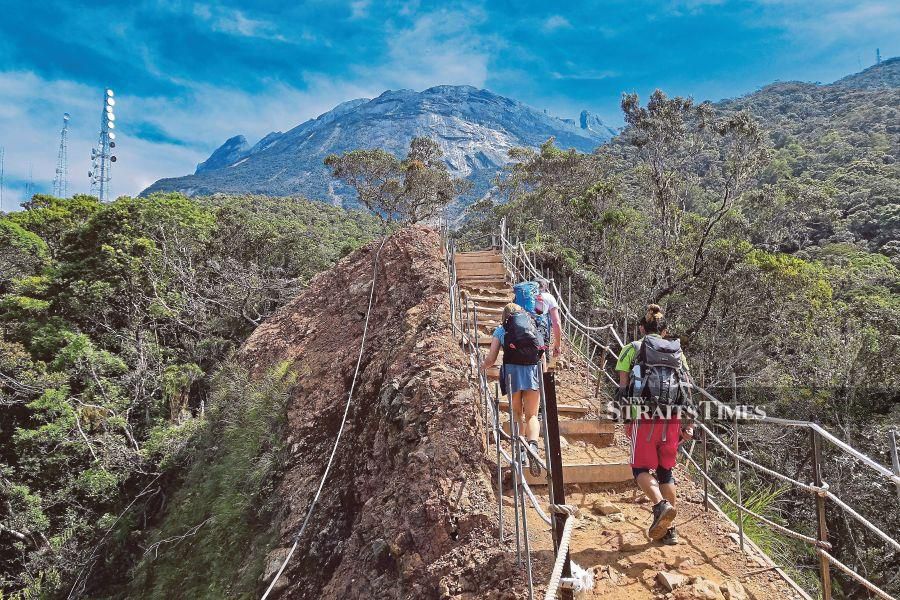By Olivia Miwil - December 2, 2020 @ 2:07pm
The Sabah government is doing its best to ensure Kinabalu Park, Malaysia's first World Heritage Site, continues to keep its title. - NSTP file picKOTA KINABALU: The Sabah government is doing its best to ensure Kinabalu Park, Malaysia's first World Heritage Site, continues to keep its title.
Kinabalu Park assistant director Yassin Miki said, according to the International Union for Conservation of Nature (IUCN) World Heritage Site Outlook between 2014 and 2017, there are four threats that might see the stripping of the title.
These are protection and enforcement; land disputes by the local community; the presence of dandelion as an invasive species; and, tourism impacts.
"In order to fix those threats to maintaining (Kinabalu Park) as a World Heritage Site, the authorities have strengthened protection and enforcement, surveillance and boundary maintenance.
"Throughout 2017 to 2020, 34 people have been compounded a total of RM26,000 while 62 investigation papers have also been opened," said Yassin, adding that most of the offences are for opening traditional farms without permits.
The park also found climbers using fake permits or using alternative routes to encroach the mountain site.
Yassin was one of the panelists in a webinar dubbed "Celebration of Kinabalu Park being recognised as a World Heritage site" in conjunction with its 20th anniversary today.
As for the disputed community land, which involves 13 villages, he said the authorities have awarded permits to six villagers for them to conduct traditional farming.
Yassin also said the presence of invasive species such as the dandelion in Kinabalu Park was merely at three sites - Mesilou highland, the summit trail, and Kinabalu Park complex.
"(From 2017-2020) a continuous effort led to 5,971kg of dandelion being destroyed by volunteers and staff (of the park).
"The same (continuous effort) goes for reports of tourism impacts, with crowds leading to litter being found at the site. Our management staff are one of the most dedicated in ensuring there is no rubbish around the site."
Yassin said the park has now also limited capacity at Mount Kinabalu to 180 climbers, down from 220 before a rather damaging earthquake hit the area in 2015.
He said the park had also formed an additional unit of Mountain Search and Rescue employees to ensure the safety of those on the mountain.
The webinar also saw the participation of Sabah Tourism, Culture and Environment Ministry permanent secretary Dr Jamili Nais, Sabah Parks director Dr Maklarin Lakim and Jakarta-based United Nations Educational, Scientific and Cultural Organisation representative Professor Dr Shahbaz Khan.
Academicians such as Universiti Malaysia Sabah geologist Professor Dr Felix Tongkul and Universiti Kebangsaan Malaysia's Professor Emeritus Datuk Dr Ibrahim Komoo also shared their insights related to geology.
Jamili, who has been appointed a member of the IUCN World Heritage panel, said the recognition of Kinabalu Park was a source of pride for Sabah.
"During the virtual conference (of IUCN) last night, there were developed countries who looked highly on the nomination of sites to be World Heritage Sites.
"Therefore, Kinabalu Park is something that we can be really proud of and should pass the heritage on to our next generations."

Comments
Post a Comment